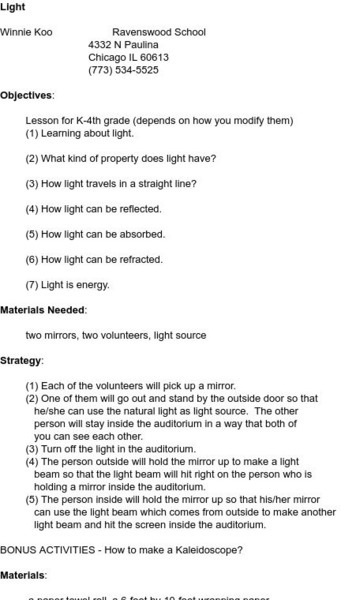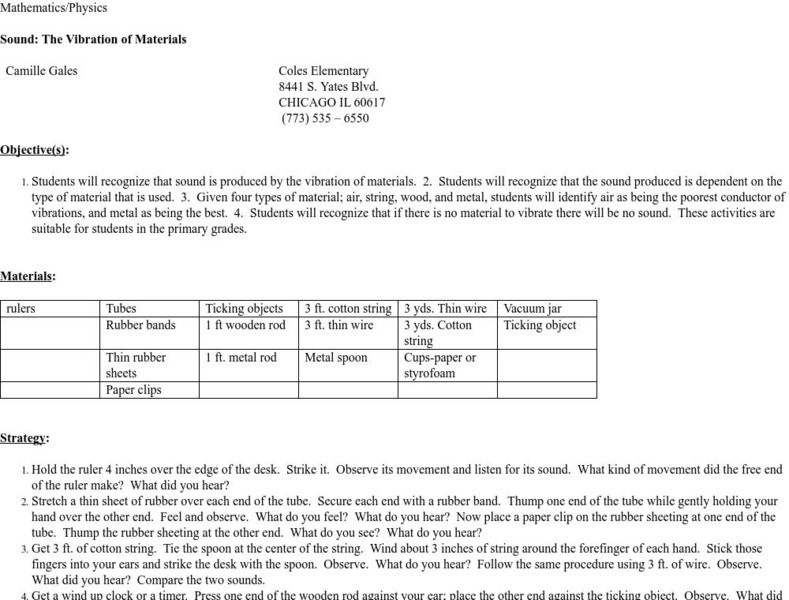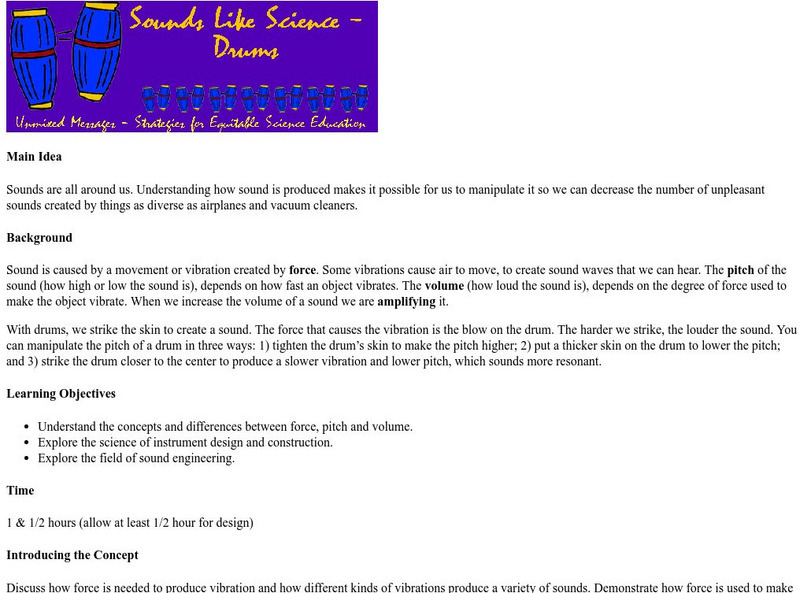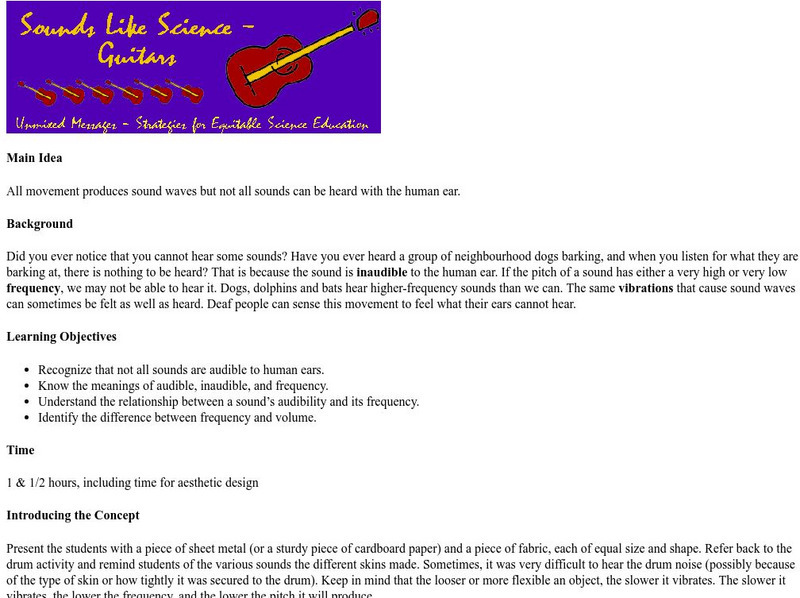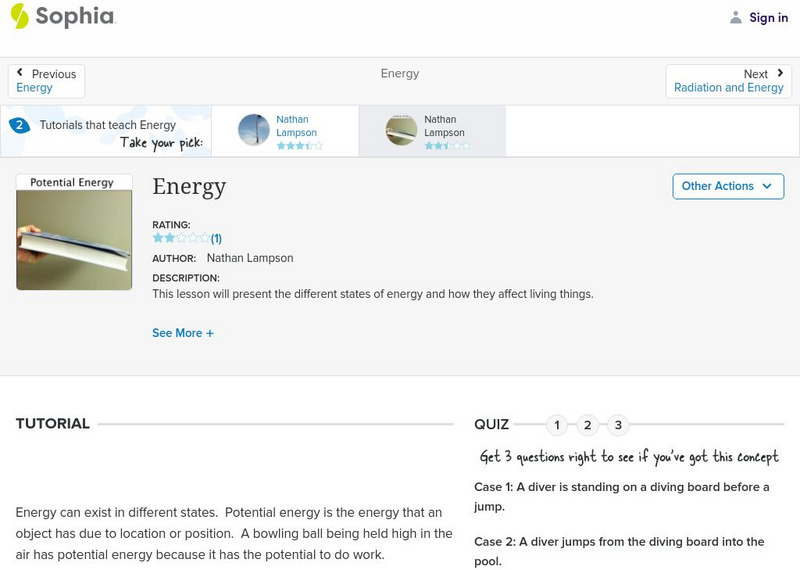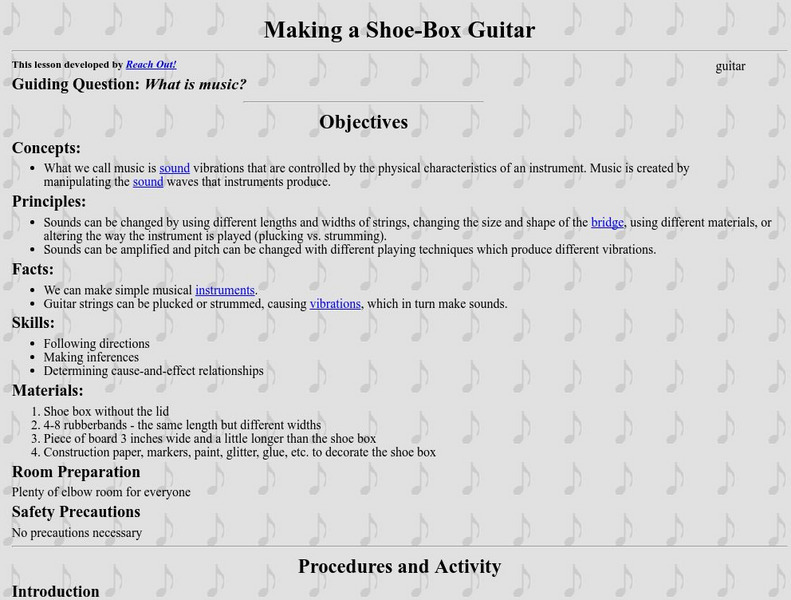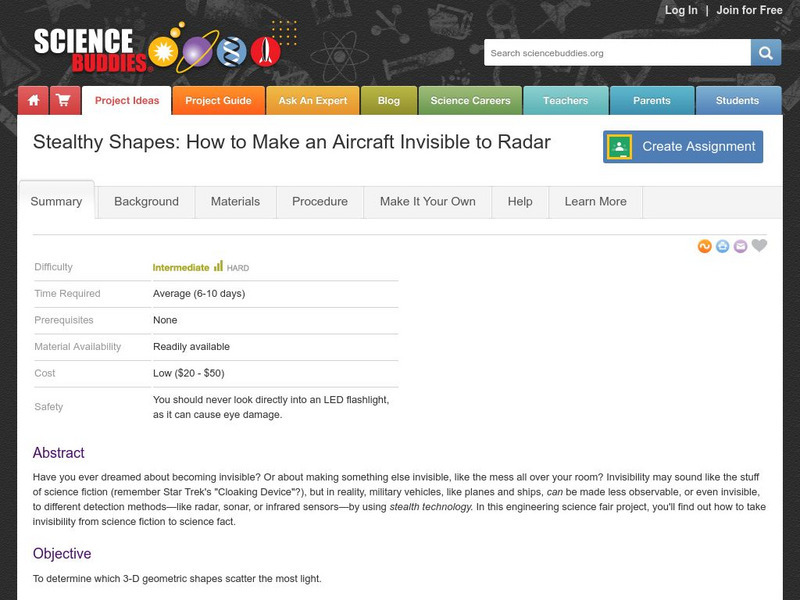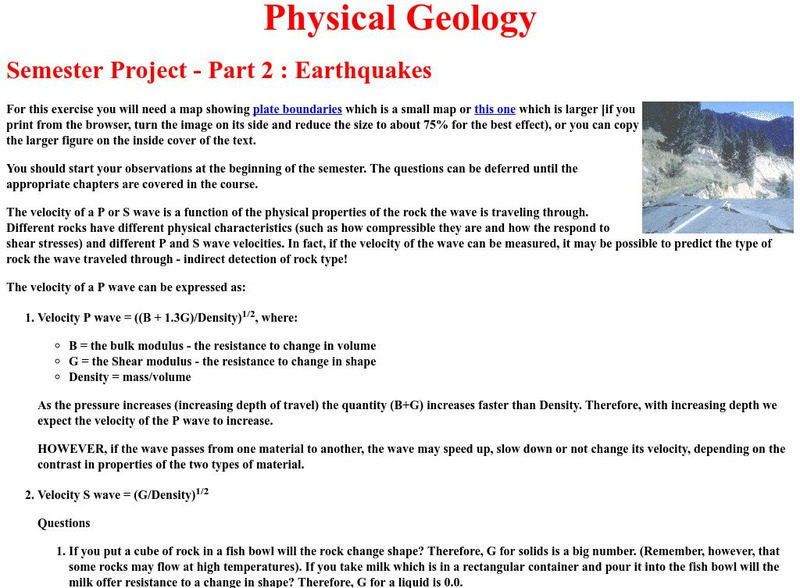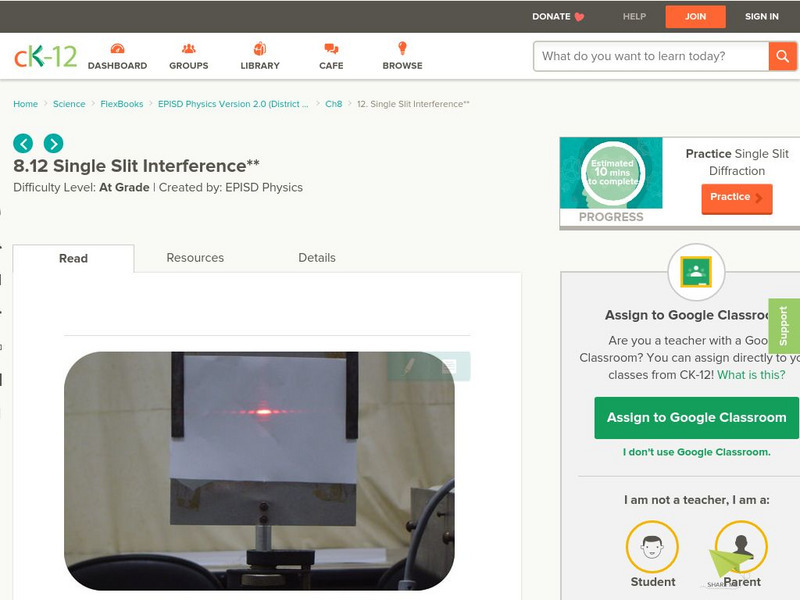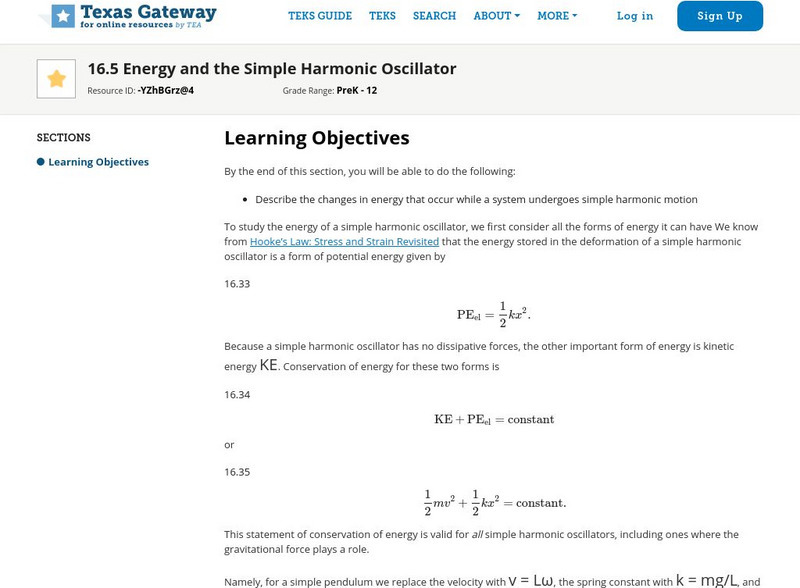CK-12 Foundation
Ck 12: Photoelectric Effect
[Free Registration/Login may be required to access all resource tools.] Students will understand the photoelectric effect and that light has both particle and wave properties. Includes a simulation for exploring the photoelectric effect.
Curated OER
Science Kids: Science Images: Anechoic Chamber
A photo taken from the inside of an anechoic chamber. The effect of rebounding sound waves is kept to a minimum in such an anechoic chamber thanks to the large surface area that absorbs most of the noise.
Science and Mathematics Initiative for Learning Enhancement (SMILE)
Smile: Sound
This site provides a lesson plan designed for primary students over a three week period. Students learn concepts of vibration, communication,and pitch.
Science and Mathematics Initiative for Learning Enhancement (SMILE)
Smile: Sound (Primary)
This site provides two activities that can be used in the primary elementary classroom. The purpose is to "demonstrate different ways to produce sound."
Science and Mathematics Initiative for Learning Enhancement (SMILE)
Smile: Light (K 4)
This site provides two activities that young scholars can do in class. One uses mirrors to reflect light beams whole another is making a kaleidescope.
Science and Mathematics Initiative for Learning Enhancement (SMILE)
Smile: Sound, the Vibration of Materials
Great activity for primary and intermediate students to learn why objects make noise. This can be organized in stations or in groups of students.
Michigan Reach Out
Michigan Reach Out!: Drums (Sounds Like Science)
This site is provided for by Michigan Reach Out. Students experiment with the variables of force, pitch and volume after making a drum.
Michigan Reach Out
Sounds Like Science: Guitars
At this site explore the relationship between audibility and frequency of sound, and the difference between frequency and volume.
Sophia Learning
Sophia: Energy: Lesson 4
This lesson will present the different states of energy and how they affect living things. It is 4 of 7 in the series titled "Energy."
Michigan Reach Out
Michigan Reach Out!: Making a Shoe Box Guitar
This site provides an experiment where students create a guitar to discover what variables will change sound.
Michigan Reach Out
Sounds Like Science: Bottle Organ
In this lesson plan students are able to manipulate sound to arrange a musical scale. Can be used by both science and music teachers.
Georgia Department of Education
Ga Virtual Learning: Optics
Students discover how mirrors affect optics in this module through reading informational text, watching animations, and answering self-checking practice questions.
Science Buddies
Science Buddies: Project Ideas: How to Make an Aircraft Invisible to Radar
In this engineering science fair project, students will determine which 3-D geometric shapes scatter light the most. The Science Buddies project ideas are set up consistently beginning with an abstract, objective, and introduction,...
TeachEngineering
Teach Engineering: Quantum Dots and Colors
Students are introduced to the physical concept of the colors of rainbows as light energy in the form of waves with distinct wavelengths, but in a different manner than traditional kaleidoscopes. Looking at different quantum dot...
American Museum of Natural History
American Museum of Natural History: Play With Color and Light
See what happens when you mix different colors of lights.
CK-12 Foundation
Ck 12: Double Slit Interference
[Free Registration/Login may be required to access all resource tools.] Explains the terms diffraction, interference, and interference patterns. Describes the double slit experiment and how to determine the wavelength of a double slit...
University of Houston
University of Houston: Earthquakes
This exercise will help students understand the plate boundaries of earthquakes.
Khan Academy
Khan Academy: Doppler Effect Review
Review key terms and skills for the Doppler effect, including how to interpret wavefront diagrams.
CK-12 Foundation
Ck 12: Single Slit Interference
[Free Registration/Login may be required to access all resource tools.] Explains what causes single slit interference of light and how to find the wavelength of a single slit interference pattern using a formula.
Curated OER
Georgia State University: Interference of Sound
An exceptional entry for interference of sound and its causes. Well illustrated and good explanations; part of a large hyper-textbook on various physics concepts.
University of New South Wales (Australia)
University of New South Wales: Introduction to Acoustics of Brass Instruments
Discover the acoustical properties of brass instruments from this well researched site provided by the University of New South Wales. Everything from lip control to bell shape is discussed as it applies to frequencies and harmonics.
Texas Education Agency
Texas Gateway: Energy and the Simple Harmonic Oscillator
By the end of this section, you will be able to describe the changes in energy that occur while a system undergoes simple harmonic motion.
Other
Is the Speed of Light Constant?
Using a question and answer format, this page discusses the question: "Is the Speed of Light Constant?" Discusses some of the history and experiments performed with light and the conclusions drawn from those findings.
Khan Academy
Khan Academy: Light and Electromagnetic Radiation Questions
Questions pertaining to light and electromagnetic radiation.
Other popular searches
- Waves Physics Tsunami
- Physics Sound Waves
- Sound Waves Physics
- Energy Waves Physics
- Waves Physics High School
- Waves Physics Radio Waves
- Inquiry Based Physics Waves
- Waves Physics Practical
- Physics Waves
- Latitudinal Waves Physics
- Waves Physics Pictures
- Waves Physics Worksheets




